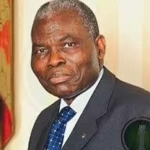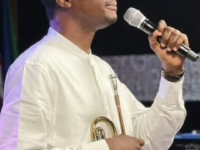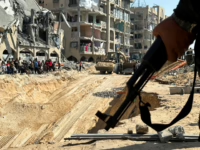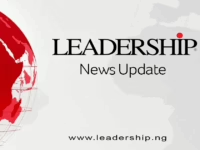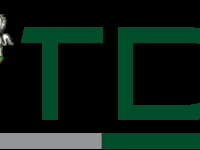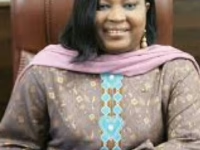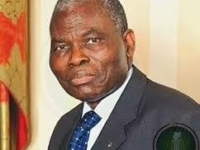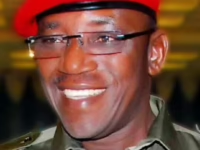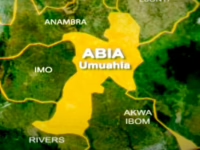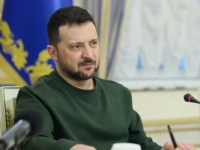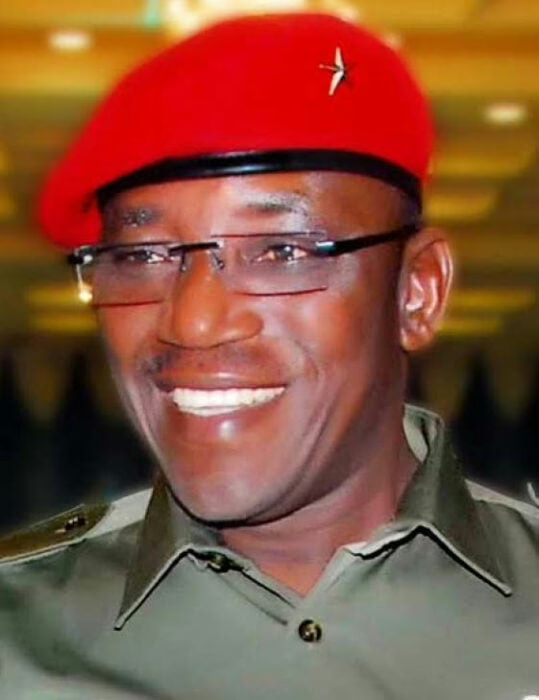How do you evaluate the performance of the APC government under President Bola Tinubu after more than two years in office?
President Bola Tinubu and his family have finally realized their long-held ambition of his presidency in Nigeria. To be fair, he has been transparent about his approach to governance, which centers primarily on himself, his family, and his closest allies. These are the spheres where his priorities and investments lie.
Despite being in power for over two years, there is little evidence that the average Nigerian has experienced significant benefits from his administration.
However, I do not place all the blame on the president alone. His campaign slogan, “Emilokan” – meaning “it’s my turn” – was fundamentally a declaration of entitlement rather than a pledge to serve the people. It signified a claim to power and control over national resources, which he appears to distribute at his discretion.
Rather than governing in line with the Nigerian Constitution, President Tinubu seems to rule based on personal whims and preferences. This has rendered the Montesquieu principle of Separation of Powers largely theoretical at all levels of government. The National Assembly, State Houses of Assembly, and local councils have all lost their independence. Governors have effectively captured state legislatures; local government councillors are beholden to chairmen; and the National Assembly functions as a mere extension of the presidency, performing theatrics of applause and celebration whenever the president appears.
In this context, where do the youth stand? For over thirty years, young Nigerians have been marginalized. The military regimes initiated this neglect, viewing the youth as a threat due to their activism and demands for better living conditions. They responded by sidelining genuine youth voices and creating token “youth” groups that received small handouts in exchange for loyalty.
When civilian rule began in 1999, this system was inherited and refined by politicians. Today, many Nigerians aged between 40 and 50 struggle to afford even basic tools like wheelbarrows. A significant number have become dependents of their elderly parents, who once hoped that their children’s education would lead to improved livelihoods. Tragically, many of these parents now face serious health challenges and struggle to provide for themselves, while their children remain unemployed and aimless.
What is your perspective on the backlash and skepticism surrounding the recent presidential pardon of 175 former convicts?
The recent presidential pardon granted by President Tinubu has sparked widespread condemnation nationwide. By releasing individuals convicted of drug trafficking, fraud, illegal mining, kidnapping, and even the infamous murderer Maryam Sanda, the president has transformed the constitutional prerogative of mercy into a political bargaining chip.
What should have been an act of clemency has instead become a vehicle for favoritism, eroding the ethical foundation of justice. This has left the judiciary humiliated and the nation sinking further into moral decline. Judges who painstakingly delivered verdicts under immense pressure now witness their rulings being overturned by executive decree. Years of diligent prosecution and judicial bravery have been rendered meaningless under the guise of mercy.
Once regarded as the last refuge for ordinary citizens, the judiciary has become the greatest victim of this reckless politicization. If the executive branch can arbitrarily nullify court decisions, then the courts lose their status as bastions of justice and become irrelevant institutions.
The inclusion of hardened criminals in the pardon list is a direct affront to morality and a betrayal of crime victims. It sends a message to the world that in Nigeria, crime is rewarded if one has the right political or social connections. This decision dishonors the memory of victims and shatters the trust of families who believed the state upheld justice.
Regarding the claim by National Security Adviser Mallam Nuhu Ribadu that security has improved by about 90%, do you concur?
I disagree with that assertion. Security has not improved; what has increased is the security budget, now standing at N3.10 trillion. When the NSA claims security has improved, he is referring to the rise in funding, not the actual safety of citizens. If Nigerians were truly safer, how do you explain a journalist having to leap from a window in Katampe, Abuja-a supposedly secure diplomatic zone-to escape armed robbers? What kind of “improvement” is that?
While I acknowledge the budget increase, it primarily benefits those within the security apparatus. To claim Nigerians are safer now is misleading. Even Abuja is no longer secure. When people say security has improved, they often mean their own financial gain has increased.
What is your view on the escalating insecurity in Kwara State?
The situation in Kwara is alarming and poses a serious threat to national security. Situated at the intersection of the rainforest and Sahel regions, Kwara is a melting pot of northern and southwestern cultures. Its politics reflect complex ethnic and religious tensions among Yoruba and Fulani groups, Muslims, Christians, and Traditionalists, all coexisting uneasily. These divisions have now escalated into significant security challenges. If the federal government continues to ignore these issues, as it has elsewhere, and the Chief of Defence Staff remains more focused on media appearances than field leadership, the situation could deteriorate rapidly, endangering national stability.
Tarok land, particularly Langtang North and South LGAs, is currently considered safer than other parts of the state. What strategies have you employed that others might learn from?
Our community was among the first in Nigeria to suffer from bandit attacks. Between 2002 and 2005, we endured relentless invasions that halted farming and economic activities for about three years. People could barely venture beyond a few kilometers from their homes. Armed groups frequently raided our villages.
Initially, we fled and many were displaced. But we soon realized that while the bandits had weapons, they were outnumbered by our population. Constant retreat was unsustainable. We developed a collective defense strategy: whenever bandits approached, the entire community would prepare to confront them, ready to sacrifice our lives if necessary. This resolve was communicated widely among Tarok communities.
During one attack on my village, Sabon Gida, in 2002, I was caught off guard in the bathroom. My late mother, then in her seventies, immediately grabbed a stick and ran toward the attackers, ready to defend our home. The entire community, young and old, rallied courageously. This show of unity and bravery forced the bandits to retreat, and we pursued them until they were driven away. We learned that the strength of the people can surpass that of weapons.
For lasting security in Tarok land and beyond, the government should leverage the expertise of retired security personnel. As a retired serviceman myself, I know many former officers and soldiers who understand the unique challenges of their communities. Their insights into criminal tactics, firepower, and motives can greatly enhance security operations.
Efforts like Operation Rainbow should be expanded to recruit local youth and raise security awareness within communities. Empowering locals to participate actively in their own protection is crucial.
As Nigeria marked its 65th Independence anniversary, do you believe the country is progressing on the right path?
First, I commend our founding fathers for their courageous struggle for independence. Their intentions were pure, and they envisioned a prosperous nation. However, 65 years later, I echo the sentiment once expressed by Dr. Chris Ngigi, former Anambra governor and Minister of Labour, who said that if Chief Audu Ogbeh were in heaven, he would report to the likes of Tafawa Balewa, Ahmadu Bello, Awolowo, Azikiwe, and Okpara that we have failed them profoundly. Not only have we fallen short of their dreams, but in many ways, we have regressed.
While Nigeria has made some progress, it pales in comparison to the vast resources at our disposal. At 61 years old, I am only slightly younger than the nation itself. I am grateful we remain united, but deeply disappointed by our current state. Personally, I feel my own achievements surpass the development of my country.
Before the 65th anniversary, Plateau State organized interfaith prayers for unity and progress. Many opposition members did not attend. Why was that?
I was invited but had prior commitments, which prevented my attendance. Nonetheless, I have always respected invitations from the state government because it represents all Plateau residents. Despite being in opposition, I support any sincere initiative that promotes peace and development. The governor made campaign promises, and I intend to hold him accountable by reviewing his performance before the next election.
What should be an act of compassion has instead become a tool of political favoritism that undermines the moral foundation of justice
I do not believe in undermining the governor just to score political points. However, the APC in Plateau has shown itself to be sore losers. Back in 2015, when we were all members of the APC, bitter politics in Plateau escalated dramatically. Even within the party, false accusations and conspiracies were directed at me. The then governor was restless, fighting imaginary battles.
As a seasoned politician, I refused to engage. Had I contested the 2019 election, it could have led to violence in Plateau. I chose peace over ambition and informed Governor Simon Lalong multiple times that I would not run. Unfortunately, some of his aides misled him by fabricating campaign materials suggesting otherwise. Ultimately, I did not file to run because the security situation was already dire, with kidnappings and assaults rampant. It would have been irresponsible to add political tension to an already volatile environment.
Therefore, I abstained from contesting for governor, senate, or house seats, prioritizing peace in Plateau above personal political gain.
Since Governor Caleb Mutfwang took office, he has invited opposition members to stakeholder meetings and elders’ forums, but attendance has been poor. The opposition has revived divisive politics, spreading bitterness throughout the state.
You’ve painted a bleak picture of Nigeria at 65. What do you believe is the path forward?
President Tinubu and the APC-led federal government must return to the fundamental social objectives outlined in Chapter Two of the Nigerian Constitution. This chapter clearly defines the responsibilities of leadership, emphasizing the welfare and security of the people.
Governance should prioritize healthcare, economic stability, and security. If current trends persist unchecked, Nigeria may not hold elections in 2027. Many communities could be displaced, and bandits may end up living more peacefully than ordinary citizens.
This is why I strongly advocate for the establishment of state police, as well as empowering local government and community policing. I even support the right of individuals to bear arms.
Bandits in their strongholds are all armed, yet they coexist without internal conflict. If citizens were similarly armed, mutual respect would increase, as no one would dare provoke another.
Anyone opposing state police is either a criminal, a bandit, or complicit in insecurity. Why should politicians travel with armed escorts while ordinary villagers rely on overstretched federal police? People in rural areas must be empowered to defend themselves.
When both parties are armed, respect and peace are more likely to prevail.
Which political party do you currently belong to?
My current party affiliation is not the main issue. The real problem is the entrenched politics of bitterness in Plateau State, which has escalated to the point where peace is fragile. For example, during the mourning period for Nana Lydia Yilwatda, mother of APC national chairman Prof. Nentawe Yilwatda, some turned the occasion into a political battleground.
The APC national chairman made inappropriate public comments about Governor Caleb Mutfwang’s private life, which I have only criticized on governance issues, not personal matters. Accusations about the governor’s family appearing before the EFCC are unprecedented and uncalled for. This is not politics; it is bitterness.
When the time for elections comes, we will evaluate Governor Mutfwang’s performance against that of his predecessor, Simon Lalong, considering achievements and financial management adjusted for inflation. Plateau people must not be misled. I urge our citizens to prioritize peace and unity over divisive politics.
I am part of a coalition-a convergence of like-minded political actors and movements committed to rescuing Nigeria’s democracy. We are still organizing and will soon make our presence known. For now, party membership is secondary. The coalition is evolving, and before the next election, we may undertake significant reforms, including rebranding.
A committee will be established to review the party’s manifesto, internal structures, and constitution to ensure they reflect Nigeria’s current realities.
Much is underway, and I believe we are in a transitional phase.


